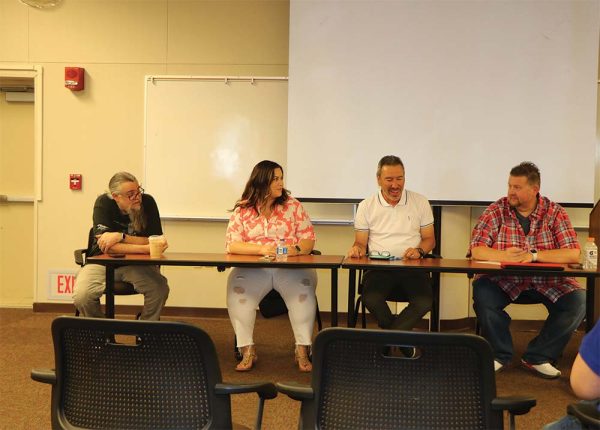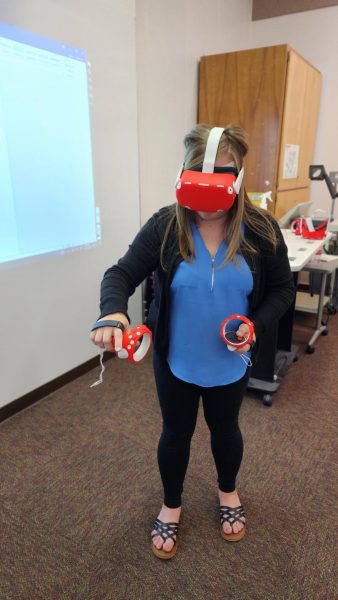Music then vs now: recalling the past to help shape the future
April 8, 2022
Bakersfield College professors Kris Tiner, Reggie Williams, and Joshua Ottum of music, philosophy, and commercial music respectively met virtually on Zoom to discuss largely how music is used in media and how it greatly affects the medium on April 6.
The professors expounded great philosophical ideas on music after watching something as trivial as a video of someone playing guitar paired together with a cat that was playing the piano. As amusing as the concept may sound, the professors took it completely seriously. The professors dissected musically what was taking place in the video that they showed and then continued to break it down.
“The idea that we’re finding meaning in something that’s totally random,” Tiner commented, expanding on the idea that the cat clearly does not know what it is doing or what it is creating, yet it is indeed creating and adding to someone’s art by only pressing on very specific keys of the piano, resulting in a very specific sound that one would not immediately prescribe as music, but when paired with another musical instrument sounds quite normal as an accompaniment.
“There’s plenty of music out there that sample non-music sounds, like sounds of the city,” Ottum stated, “[…] the beauty of that is this act of confusing the meaning,” he continued. The professors agreed that the practice was very human, before moving on to critiquing and analyzing solely human made media.
The professors referenced films by name when naming examples of movies that used their music correctly, as opposed to other movies that used bombastic scores which led to the audience shying away from taking what it was depicting at a given moment on screen as realistic.
Ottum referenced songwriter Kenny Loggins, who wrote hit songs for popular films such as “Footloose,” “Top Gun,” and “Rocky IV” as being an incredible songwriter for knowing exactly how to create music to sell to the audience what is happening on the screen, “that is an A+ homework assignment,” Ottum said in reference to Loggins greatest works.
After comparing the music of the 1950s to that of the 1980s due to their composition, Ottum remarked upon the current iteration of movies produced and their uniqueness from other decades of music, asking “what’s the style of now?”
Williams ended the webinar thanking those who attended, took part in the discussion, and referenced the late Jack Hernandez as he commented one more time on the music that was played, “Jack would’ve loved it,” he said.










